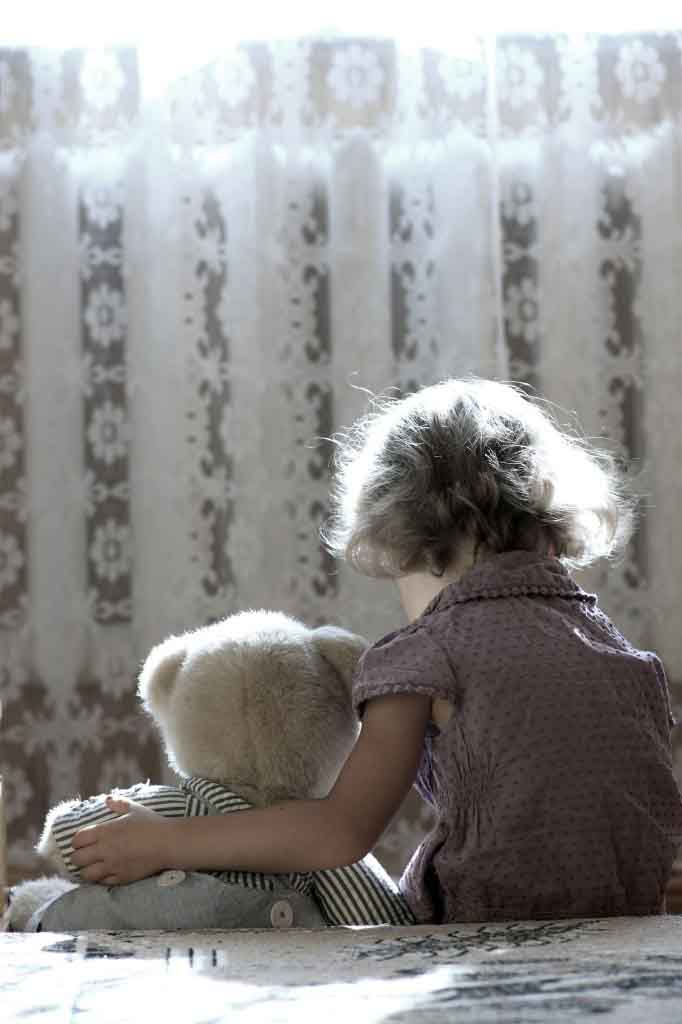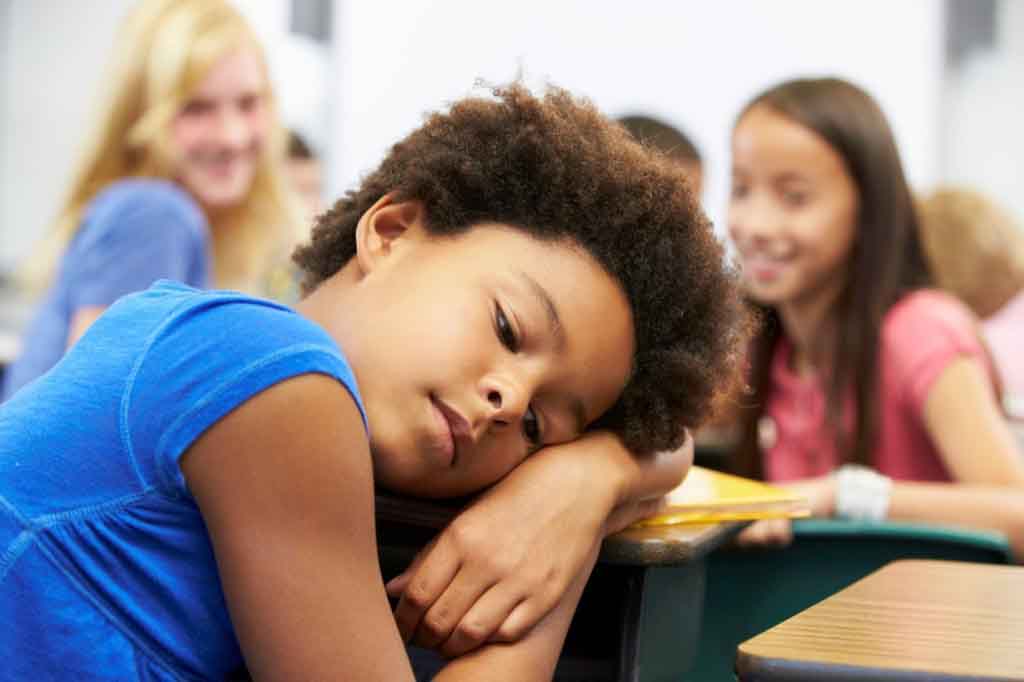Domestic Violence’s Claws Carve Deep into Children’s Undeveloped Mind
It’s just a bruise – it will soon disappear.
A blackened eye, a twisted arm, facial scrapes, or a chipped tooth, none of these will leave a permanent mark on your appearance. Even the guilt, the shame, and the constant fear you’re living under will eventually pass, as you “realize” his behavior is triggered by a lot of factors he has no control over. Finally, you come to accept that the stress your partner may be under, his childhood traumas, or the way he loves you with all his being (and cannot stand to have another man looking in your direction) may result in an occasional punch in the face.
Maybe you like lying to yourself, or you simply cannot grasp that you’re making excuses for abuse. Perhaps your love – or more likely fear – won’t let you see past the fact that abuse is never acceptable, and you will let it slide, time and again. But your children, the silent witnesses who take part against their will to the arguments and beatings every night, the ones who are then haunted in their dreams and anxious in their lives, they aren’t getting past it as easily.
The Consequences of Abuse
Published in the American Psychological Association journal Psychology of Violence earlier this month, a nationwide study of children who have witnessed instances of domestic violence and abuse revealed that, in more than one-third of cases, parents and caregivers were physically injured, but only 1 in 4 incidents were reported to the police. In fact, says the study, less than 2 percent of all perpetrators ended up in jail.
Domestic violence was also directed towards children in 1 in 75 cases, but while the physical injuries healed, the anxiety and terror remained. Of the 517 children surveyed, among which 4 children saw the violence, 21 percent heard it, and 3 percent observed the injuries later, more than 50 percent of the respondents confessed they were fearful someone will get seriously hurt, while 2 in 5 said the violence was the most terrifying experience they had ever lived.
 From the Domestic Violence Roundtable, an online portal dedicated to fighting against domestic violence and abuse, we learn that children are severely impacted by their parents abusing each other. And even though they are rarely the direct recipients of violence, they may carry internal wounds that may never fully heal:
From the Domestic Violence Roundtable, an online portal dedicated to fighting against domestic violence and abuse, we learn that children are severely impacted by their parents abusing each other. And even though they are rarely the direct recipients of violence, they may carry internal wounds that may never fully heal:
“Children who grow up with abuse are expected to keep the family secret, sometimes not even talking to each other about the abuse. Children from abusive homes can look fine to the outside world, but inside they are in terrible pain. Their families are chaotic and crazy. They may blame themselves for the abuse thinking if they had not done or said a particular thing, the abuse would not have occurred. They may also become angry at their siblings or their mother for triggering the abuse. They may feel rage, embarrassment, and humiliation.”
Effects of Violence Extend Well into Adulthood
Witnessing violence at home is not something a child can easily forget. On the contrary, most violent incidents will potentially lead children to develop a wide range of age-dependent negative effects. Regarding the cognitive, behavioral, and emotional impact of violence on children, research has demonstrated that victims are often at a greater risk to develop anxiety, depression (internal behaviors) or engage in fighting, lying, or cheating (external behaviors). They may act more rebellious and disobedient towards authority and may perform poorly in school, not to mention they will encounter great difficulties establishing future social relationships.
 The UNICEF report “Behind Closed Doors: The Impact of Domestic Violence on Children” has analyzed the long-term wounds children of abuse carry well into their adult lives. Some of the most important findings of the report include:
The UNICEF report “Behind Closed Doors: The Impact of Domestic Violence on Children” has analyzed the long-term wounds children of abuse carry well into their adult lives. Some of the most important findings of the report include:
- Domestic violence can rapidly turn into child abuse.
- Abused children may become abusers themselves.
- As they grow, children may display poor performance in school, have concentration and focus problems, and have difficulties interacting with their peers.
- Children of abuse are more exposed to teen pregnancy, substance and alcohol abuse, and criminal behavior.
- Social development of abused children may also be damaged, as they exhibit signs of violent behavior more often than non-abused children. Among people, they may feel uncomfortable and confused, gradually losing the ability to connect with others.
Are We Still Far from the Truth of Domestic Abuse?
Fortunately, few people today still share the antiquated views and preconceived ideas describing domestic violence either as rare or affecting only a small percentage of the population, caused primarily by alcohol, and more prevalent in poor, uneducated, minority families. Some of the myths even state that men have the right to discipline and control their partners, and battery or physical abuse are not even a crime, as long as it doesn’t result in the death of the abused. Men are men, so they’re entitled to treat their personal property – be it spouses and children – the way they want.
One by one, these myths have been debunked by extensive research conducted over the past couple of decades. For instance, several national studies have estimated that the real number of beaten women each year in the US surpasses 3 million. Domestic violence is the leading cause of injury for females ages 15 to 44, and the FBI estimates that one domestic violence incident takes place every 15 seconds. Unfortunately, abuse doesn’t stop at causing injury: 1,500 women are murdered every year by their intimate partner as a result of domestic violence.
Another stereotype contradicted by recent studies is the one that battering and abuse occurs more often in low-income or minority families. Previous studies of domestic violence, as well as the one above conducted by The University of South, revealed that abuse happens across all age groups, religions, minorities, and social status. It was found that 28 percent of domestic abuse happens in households with incomes under $20,000, while similar percentages – 30 percent, 18 percent, and 24 percent – occur in households with incomes of $20,000-$50,000, $50,000-$75,000, and over $75,000, respectively.
To grow into responsible, sane, and happy adults, children need to live in a safe and secure environment. As members of the community and parents, it is our duty and mission to ensure children’s worlds are not turned upside down by violence. And when it does happen, we need to encourage them to speak and break the silence, hoping that it will raise awareness and help in the creation of policies that protect them and address the impact of violence in their homes.
About the Author
Andrew M. Weisberg is a criminal defense attorney in Chicago, Illinois. A former prosecutor in Cook County, Mr. Weisberg,is a member of the Capital Litigation Trial Bar, an elite group of criminal attorneys who are certified by the Illinois Supreme Court to try death penalty cases. He is also a member of the Federal Trial Bar. Mr. Weisberg is a sole practitioner at the Law Offices of Andrew M. Weisberg.







 Blog Home
Blog Home 










